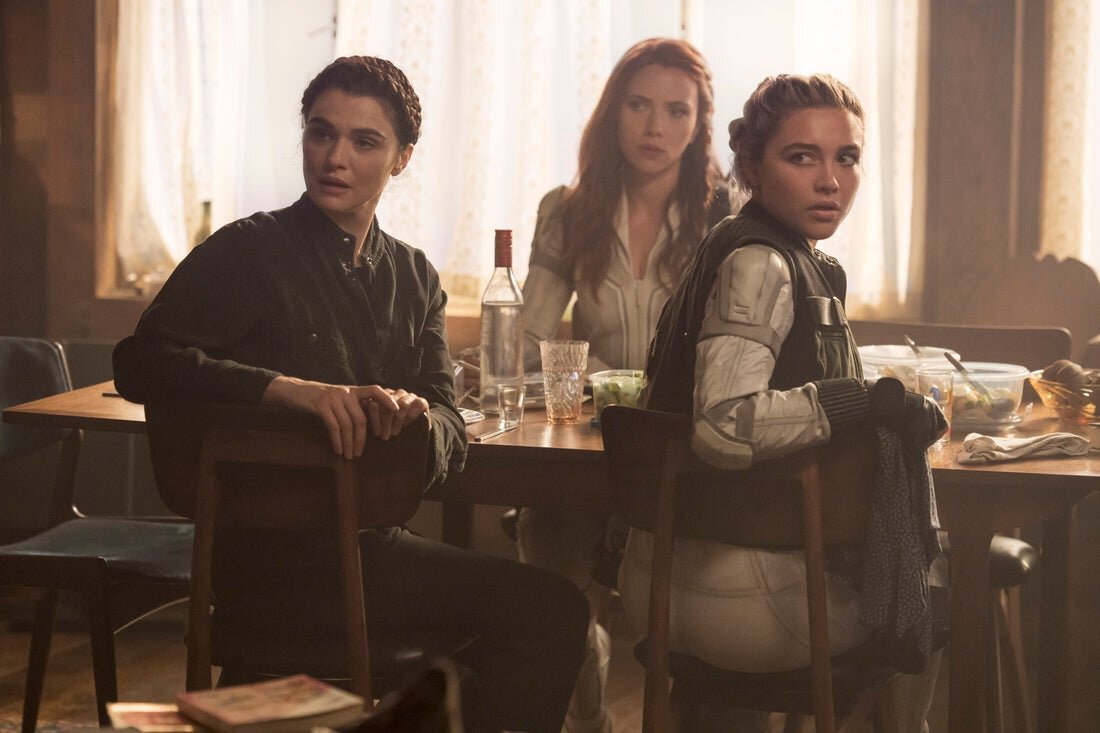Natasha Romanoff finally gets the spotlight in the MCU's 'Black Widow'
Marvel’s come a long way baby.
No, really. Anyone remember the days when even SNL was calling out the Marvel Cinematic Universe for the lack of female representation? Well, Disney is looking to finally put those days to rest, even if it’s made far greater progress in its other media. There’s a lot less queerbaiting this time around at least.
Yet another bonus in terms of minimal standards met? With “Black Widow,” Marvel’s official return to summer blockbusters, the MCU gets to delve into her life and past of the titular heroine without it revolving around her goddamn fertility, or even a love interest.
No, Natasha Romanoff (Scarlett Johansson) hasn’t gotten the resurrection treatment since her tragic sacrifice in “Endgame,” which was a shitty trade off by any measure. She’s just given a better sendoff, since “Widow” takes place shortly after the end of “Captain America: Civil War” which has the Avengers broken up and Natasha on the run. But a past like hers tends not to stay buried, and it comes calling in a manner both political and personal. As in Dreykov (Ray Winstone), the man who made her into a killer and she believes she’d dispatched, is still around, and dealing out the same and even worse treatment to other women. Whoops.
But much more interesting than the latest global conspiracy is the family baggage, which is even more complicated than it appears. We not only get Florence Pugh as Natasha’s younger sister Yelena, there’s Rachel Weisz as her mother Melina, and David Harbour hamming it up as the muscle/comic relief Alexei, still hung up on his glory days as the super soldier Red Guardian. Except none of them are actually related, given they were only thrown together for an idyllic three years of peace in Ohio during the 90s for a secret mission, and were brutally separated once the task had been completed. Told you it was complicated.
It was more than enough time to establish some family dynamics though, and “Black Widow” is most enjoyable when it’s leaning into them, whether it’s watching Pugh and Johansson work out their issues via verbal and physical combat, or just when we’re watching all these charismatic powerhouses bouncing off each other.
It’s a helluva lot more interesting than all of Tony Stark’s daddy issues combined, and it’s a damn shame it didn’t happen sooner. That said, this is still a Marvel movie, and there are certain expectations it feels bound to fulfill. It’s a rare film where the international intrigue feels like a distraction, but at least the story is timely, given that it’s all about women taking back their power after being stripped of all control over their bodies, minds, and lives by a man who practically embodies the patriarchy. Even if the details are outlandish, we don’t have to look too far to find real life parallels.
It helps that there’s also far more suspense than the typical Marvel movie. And even, occasionally, blood. Natasha has no magic hammer, serum, business empire, mechanical suit, or any superhero abilities whatsoever. Only her skills, intelligence, and endurance stand between her and death, and she’s far more vulnerable to forces which laugh at even the idea of the Sokovia Accords and rack up the collateral damage almost by habit. Watching the physical toll it takes on Natasha is probably the closest the franchise will get to a John McClane type hero. Or at least the hero he was, but that’s a topic for another day.
There should be more, and the fact that there’s not reflects just how long it took the MCU to make Black Widow less of a sex object and actually take her seriously. At least it seems the baton is being passed to Pugh, who not only effortlessly holds her own opposite Johansson, but breathes life and emotion to her every role, whether as an abused wife turned murderer in “Lady Macbeth,” a long-suffering girlfriend in “Midsommar,” or even making the most traditionally scorned character in “Little Women” a heroine in her own right. Here’s hoping Marvel will do Pugh justice.
Grade: B+






